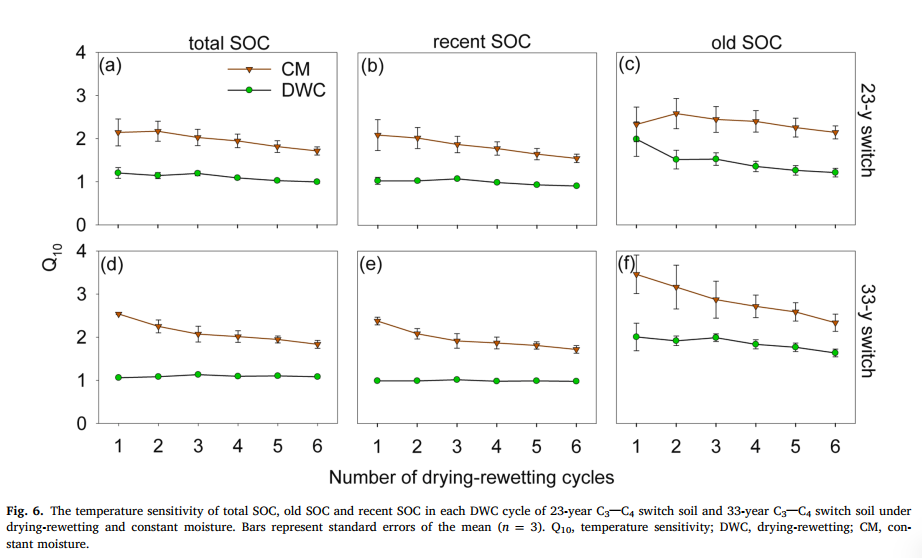Figure 6 illustrates the declining Q10 of total, old, and recent SOC under drying-rewetting cycles, but key aspects require further scrutiny:
1 – While old SOC consistently shows higher Q10, the gap between old and recent SOC narrows under drying-rewetting conditions. Could microbial shifts be altering decomposition dynamics? Was microbial community composition analyzed to support this assumption?
2 – The figure merges data from 23-year and 33-year soils, but no statistical validation (e.g., ANOVA) confirms whether these datasets are comparable. Were soil texture, organic matter, or microbial differences accounted for?

Additionally, what are the implications for carbon-climate models? Given Q10’s central role in SOC turnover predictions, how do these findings affect temperature sensitivity estimates under fluctuating moisture regimes? Should climate models adjust Q10 for moisture variability to prevent overestimating carbon loss?

